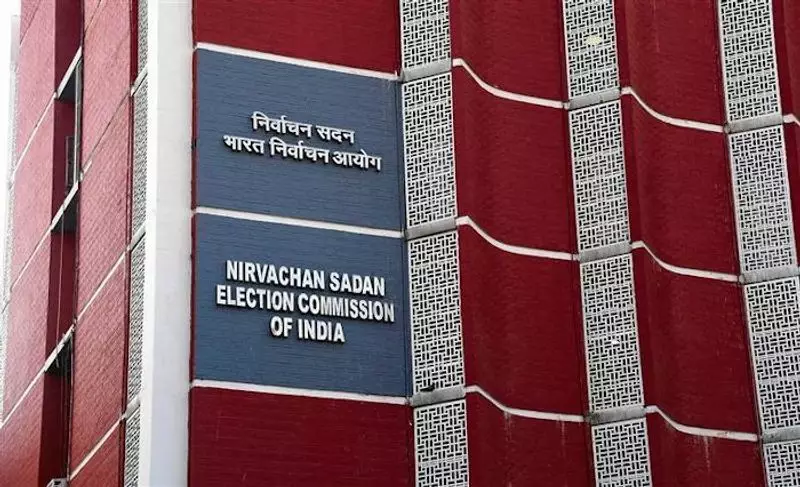
The Election Commission of India has made a crucial clarification before the Supreme Court regarding the use of Aadhaar as an identity document during electoral processes. The poll body emphasized that Aadhaar serves strictly as proof of identity and not as evidence of citizenship.
Election Commission's Submission to Supreme Court
During a significant hearing on Monday, the Election Commission informed the Supreme Court that clear instructions have already been issued to all electoral officers regarding the proper use of Aadhaar cards. The commission's submission came in response to a petition that raised concerns about potential misuse of Aadhaar data in voter registration processes.
The bench, comprising Chief Justice of India D Y Chandrachud and Justice J B Pardiwala, was hearing the case that has drawn national attention. The Election Commission's counsel presented detailed documentation showing that existing protocols explicitly state that Aadhaar cannot be treated as proof of citizenship under any circumstances.
Existing Protocols and Safeguards
According to the Election Commission's submission, comprehensive guidelines are already in place to ensure that electoral registration officers understand the distinction between identity verification and citizenship determination. These protocols have been distributed to all state election machinery and are being implemented across the country.
The commission highlighted that their standard operating procedures clearly define which documents can be accepted as proof of citizenship and which serve only as identity verification. Aadhaar falls squarely in the latter category, and election officials have been trained accordingly to prevent any confusion or misuse during the voter registration process.
Legal Context and Supreme Court's Response
The Supreme Court hearing addressed concerns about whether the collection of Aadhaar data during voter registration could potentially lead to the disenfranchisement of legitimate voters. The Election Commission assured the court that multiple safeguards exist within the system to prevent such scenarios.
Chief Justice Chandrachud acknowledged the commission's submission and noted the importance of maintaining clear distinctions between identity verification and citizenship determination. The bench observed that proper implementation of existing guidelines would address the concerns raised in the petition.
The court proceedings revealed that the Election Commission has established multiple layers of verification for voter registration, ensuring that no single document, including Aadhaar, becomes the sole determinant of voting eligibility.
Implications for Future Electoral Processes
This clarification comes at a crucial time when India is preparing for upcoming state elections and the general elections in 2024. The Election Commission's firm stance on the limited use of Aadhaar provides clarity to both election officials and citizens about their rights and responsibilities during voter registration.
The commission reiterated that while Aadhaar serves as a convenient document for identity verification, alternative documents remain acceptable for those who choose not to link their Aadhaar with voter ID. This approach maintains inclusivity while leveraging technology for improved electoral integrity.
Legal experts suggest that this clarification will help prevent potential challenges to voter eligibility based solely on Aadhaar data. The existing framework ensures that citizenship verification follows separate, established procedures that don't rely exclusively on the Aadhaar database.
As India continues to digitize its governance systems, the Election Commission's position sets an important precedent for the limited and specific use of digital identity documents in democratic processes.





